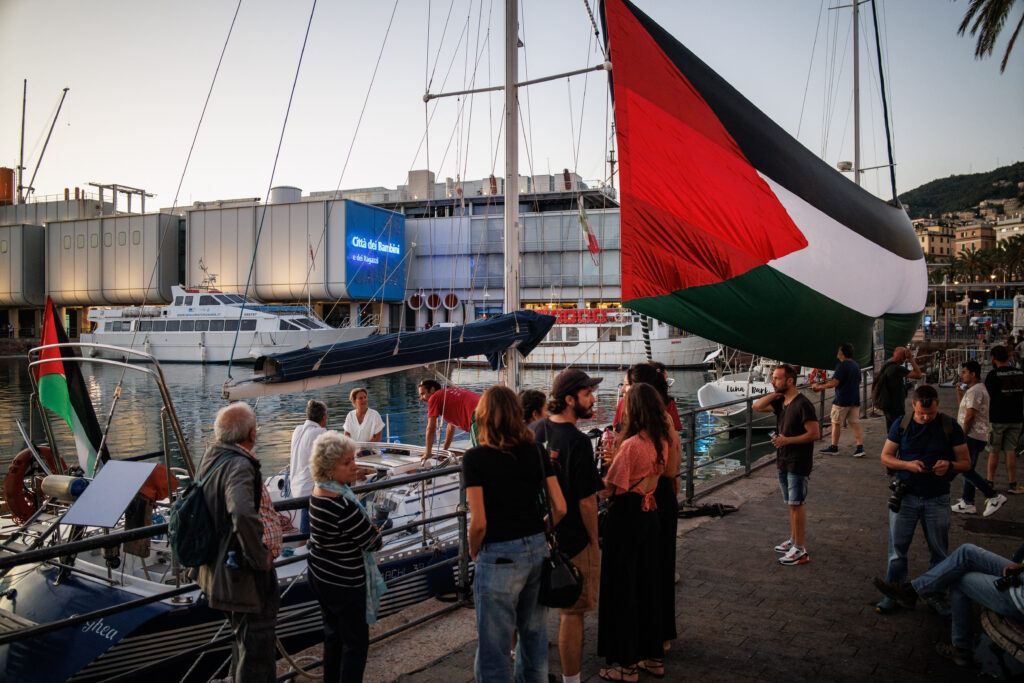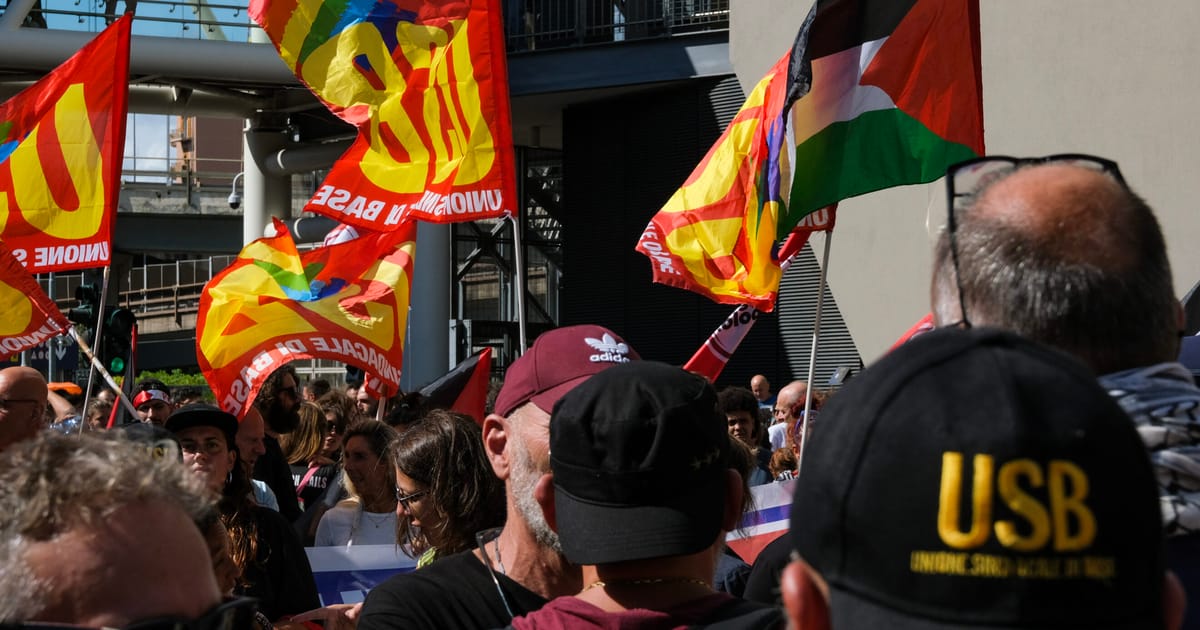Initially that means focusing on how to react to the Global Sumud Flotilla — a humanitarian aid convoy involving climate activist Greta Thunberg that was targeted by Israeli drones in international waters south of Crete earlier this week. Talks will cover blocking military exports to Israel, but the debate could widen, with moves that may threaten Israel’s trade ties with the EU.
“Looking ahead, it could mean coordinated industrial action in European ports against not just weapons, but all goods directed to Israel,” said Staccioli.
The initiative began as an effort to coordinate Mediterranean dockworkers with the aim of making ports “arms-free zones,” he explained. The urgency grew over the summer as ships loaded with weapons and military equipment bound for Israel docked in Piraeus in Greece, Marseille in France and in Genoa.
“What started as a plan for a common front in the autumn — to step up pressure and disrupt arms loading and unloading in European ports — has been reshaped by recent events,” he said.
The turning point, he said, was the Global Sumud Flotilla — the fourth and largest maritime challenge to Israel’s blockade of Gaza, involving 20 vessels and more than 300 crew. The mission set sail at the beginning of September as Gaza faces a worsening humanitarian crisis, with U.N. agencies warning of famine across the enclave.
 The Global Sumud Flotilla is the fourth and largest maritime challenge to Israel’s blockade of Gaza, involving 20 vessels and more than 300 crew. | Federico Scoppa/Getty Images
The Global Sumud Flotilla is the fourth and largest maritime challenge to Israel’s blockade of Gaza, involving 20 vessels and more than 300 crew. | Federico Scoppa/Getty Images
The recent attacks against it prompted Italy to dispatch a warship to protect its citizens on board, quickly followed by Spain. Still, on Thursday Italy’s Defense Minister Guido Crosetto warned the flotilla not to attempt to force Israel’s Gaza blockade, stressing that Italian ships “will remain in international waters” and will not act as escorts.
